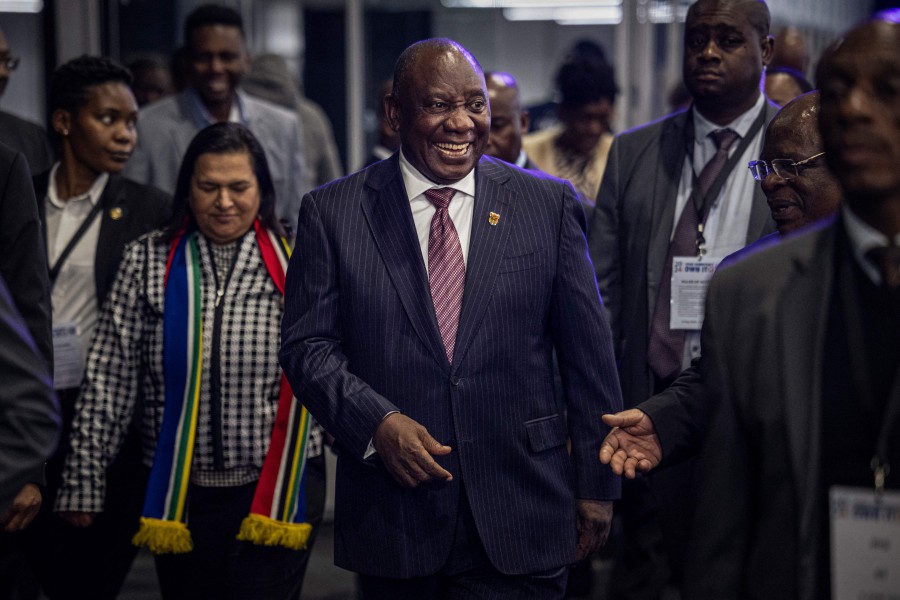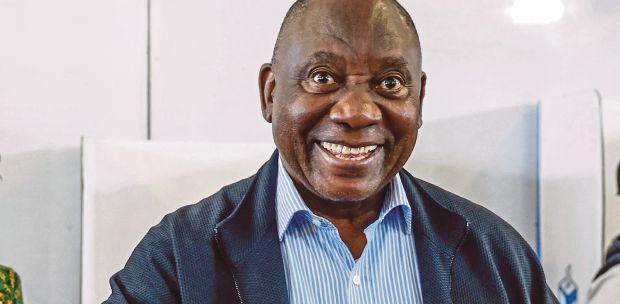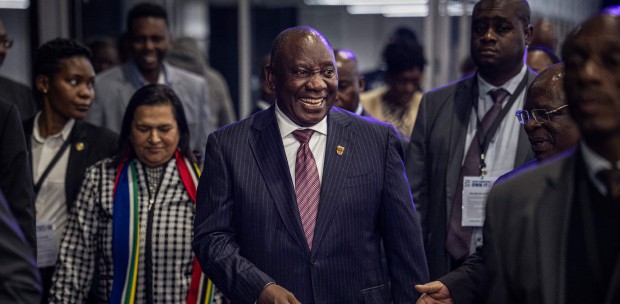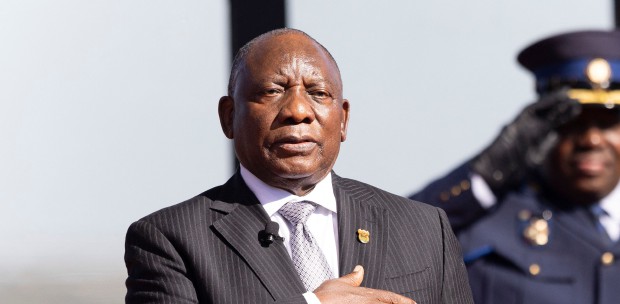A FORMER trade unionist turned millionaire businessman, Cyril Ramaphosa was once described by Nelson Mandela as one of the most gifted leaders of his generation.
The affable pragmatist played a leading role in the negotiations that ended apartheid in South Africa in the early 1990s.
More than 30 years later, his mediating skills proved once again crucial, this time for his political survival.
After leading Mandela's Afri-can National Congress (ANC) to its worst electoral result ever, the 71-year-old was re-elected president for a second term on Friday, having secured the backing of other parties for an unprecedented coalition government.
"It will once again be a privilege and a pleasure to once again service this nation," Ramaphosa said, thanking other party leaders for their advice and support after parliament re-elected him.
For three decades since the advent of democracy in 1994, the ANC enjoyed an absolute majority in Parliament, which allowed it to elect a president from its own ranks.
But the former liberation movement, weakened by corruption and recent governments' poor economic performance, was left bruised and scrambling to find coalition partners by a May 29 vote that saw its support collapse.
The party won 40 per cent of the votes, corresponding to only 159 lawmakers in the 400-seat National Assembly.
Briefly, Ramaphosa's leadership appeared in doubt.
But within two weeks of the results being announced, the ANC managed to put together a coalition deal.
Parliament re-elected him by 283 votes to 44.
"This is an era of hope and it is als an era of inclusivity," Rama-phosa said.
Born on Nov 17, 1952 in Johannesburg's Soweto township, the cradle of the anti-apartheid struggle, to a policeman and a stay-at-home mother, Rama-phosa had long eyed South Africa's top job.
A fluent speaker of all 11 of the country's official spoken languages, he took up activism while studying law in the 1970s and spent 11 months in solitary confinement in 1974.
He then turned to trade unionism, one of the few legal ways of protesting the white-minority regime.
A protege of Mandela, Rama-phosa stood alongside the anti-apartheid icon when he walked out of jail in 1990.
But after missing out on becoming Mandela's successor, he swapped politics for a foray into business that made him one of the wealthiest people in Africa.
Ramaphosa developed a passion for breeding rare cattle, a business that earned him the nickname "The Buffalo" and would come back to haunt him.
He returned to politics as ANC deputy president in 2012.
Two years later, he became vice-president under the graft-tainted rule of Jacob Zuma.
In 2017, he narrowly defeated pro-Zuma rivals to take over leadership of the ANC and then the presidency when Zuma was forced out two months later.
Under his watch, South Africa suffered from record power cuts, the economy languished and crime remained rife. Unemployment is at almost 33 per cent.
A reputation for patience and strategic thinking turned into accusations of indecisiveness.
His anti-corruption drive yielded some results, with charges being brought against some high-profile figures.
But any chance of building a graft-buster reputation was destroyed by accusations that he tried to cover up the theft of a huge haul of cash hidden under sofa cushions at his farmhouse.
The president said the money was payment for buffaloes bought by a Sudanese businessman.
The ANC rallied behind him, averting impeachment.
He now has the arduous task of trying to turn around South Africa's economic fortunes while bridging conflicting views in government and his party.
The writer is from AFP





